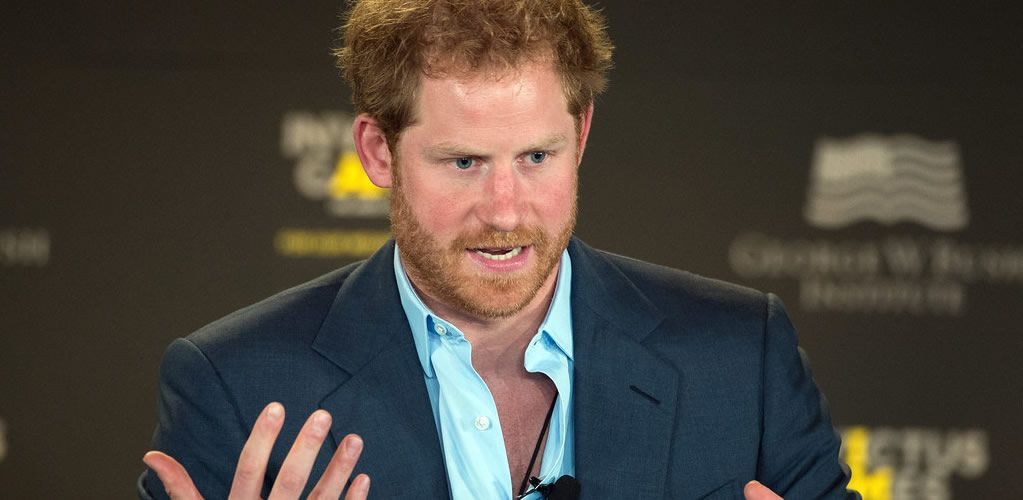How the soap opera around Prince Harry’s memoir will affect the royal brand
The drama around the revelations in Harry’s book are just the latest episode in the royal soap. But he is unlikely to emerge from his biography as a heroic figure – particularly if people read coverage of the book instead of the memoir itself.

The drama around the revelations in Harry’s book are just the latest episode in the royal soap. But he is unlikely to emerge from his biography as a heroic figure – particularly if people read coverage of the book instead of the memoir itself.
A s one of the world’s most famous brands, the British royal family has a strong, tailored narrative of patronages, pageantry and people. The monarchy has long demonstrated its value in contemporary consumer culture, and kept its buyers engaged.
But what sets the royal family apart from other corporate brands is its individual, and often uncontrollable, human elements. The narratives that they (or the media) create can produce what then Prince Charles once referred to as a “soap opera”.
| With history repeating itself – at least when it comes to royal public drama – the soap opera effect is again in full swing. The growing animosity between brand Sussex and the rest of the royals has come to a head with the release of Prince Harry’s memoir, Spare. |

|
|
It is hard not to see the ongoing sagas as a soap opera. The genre’s serial form follows a continuing narrative around a permanent cast of characters. With their sentimentality and moments of melodrama, soap operas engage us at an emotional level, inspiring feelings from sorrow and hate to joy and love. They bring us insights into the ups and downs of personal relationships, and of society at large.
Soap operas make us feel bonds with people who are otherwise not like us. A study of the series Dallas showed that even though the rich lifestyles portrayed were inaccessible to most viewers, they could relate to the tensions between love and duty. Such themes resonate strongly with royal watchers, and indeed, recur again and again throughout history.
Shaping the narrative
The release of Spare is a dramatic moment. Prince Harry’s many revelations about his life as a member of the royal family often double as criticisms of his family members.
At the heart of Harry’s narrative is his defence of his wife, Meghan, Duchess of Sussex, against her persecution by the tabloid press and the alleged complicity of his family in this. From Harry’s perspective, his powerful passion for Meghan has led to the current rift with his family and the couple’s new life in California. There, Harry and Meghan are non-working royals, no longer permitted to use the Sussex Royal branding.
They have established the Archewell Foundation, a non-profit organisation dedicated to humanitarian work and progressive causes, including through media partnerships with Spotify and Netflix. The drama around Spare threatens to overshadow and even extinguish this aspect of Harry and Meghan’s own brand.
Harry’s book is full of familiar narrative tropes. There is his wicked stepmother, Camilla, who he accuses of scheming with the press. And the emotional coldness of his father, who he claims did not hug him on telling him of his mother, Diana’s death.
Harry is the book’s heroic protagonist. He labels his brother William his “arch nemesis”, recounting many incidents of sibling rivalry and even a physical altercation. All the emotional ingredients are here to sustain many future episodes of the royal family soap opera.

“Spare?” -- Street art commenting on where the money came from for Harry and Meghan’s wedding. | CREDIT: FLICKR/GARRY KNIGHT
Empathetic engagement
It is exactly these archetypal human tensions – arch nemeses, wicked stepmothers – so easily relatable to ordinary family life, that encourage soap opera fandom and build audience empathy with the characters.
But as we have seen in the reactions to Spare, many peoples’ empathetic involvement is not for Harry. Instead, it lies with those he criticises, particularly William, Kate, and Charles. This can be explained if we consider another key characteristic of soap operas.
Soap opera heroes and heroines are not perfect and are likely to be flawed. That’s what makes them appealing and relatable. The reports about Harry’s book seem to show he enjoys highlighting flaws in other people, but not in himself or Meghan.
The blame is often firmly with others (even his decision to wear a Nazi uniform). This is why he is unlikely to emerge from his biography as a heroic figure – particularly if people read coverage of the book instead of the memoir in its entirety.
Much British sympathy is with Charles, as a father in conflict with his wayward son, and William, who has to shoulder the responsibility of the monarchy’s future with active resistance on the part of his younger, resentful sibling.
The term soap opera is frequently used in a derogatory sense, but this application is unfair. Soap operas deal with human life in all its richness, often focused around events such as births, weddings and funerals. Soap opera fans thrive on the social aspects, discussing plot lines and relationship intricacies with others who share the same interests.
For this reason, the idea of the soap opera effect in the royal family brand is not necessarily a bad thing. It helps to humanise them and to bring an emotional value to their public.
The more Harry criticises them, the more his popularity falls. To recover, he will have to find a clearer brand narrative of his own, one that doesn’t depend on resentment of the royals and playing the victim role in the family saga.

Prince Harry favourability falls to new low in run up to ‘Spare’ launch. | CREDIT: YOUGOV

GOING FURTHER:

|

|

|
— AUTHOR —

|
▫ Pauline Maclaran, Professor of Marketing & Consumer Research, Royal Holloway University of London. |
Sources
▪ Text: This piece was originally published in The Conversation and re-published in PMP Magazine on 11 January 2023. | The author writes in a personal capacity.
▪ Cover: Flickr/DOD News. - Prince Harry speaks during the 2016 Invictus Games Symposium on Invisible Wounds in Orlando. | 8 May 2016. (Licensed under a Creative Commons Attribution-ShareAlike 4.0 International License.)






[Read our Comments Guidelines]